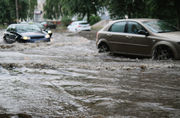Financial advisors can be a valuable resource for clients who have been named executors of the estates of family members or friends, and can be instrumental in helping them avoid costly mistakes.On receiving notification of the relative or friend’s death, your client will need to ascertain his funeral and burial wishes, and whether the arrangements have already been planned with a funeral home and pre-paid. “The executor has the final say about funeral costs if they are coming out of the estate,” said Christine Van Cauwenberghe, Investors Group’s Winnipeg-based assistant vice-president, tax and estate planning.
The executor will also need to obtain copies of the deceased’s death certificate from the funeral home and a copy of the original will.
Then he or she has to go about identifying, securing and evaluating the assets of the estate—as quickly as possible.
“The executor needs to identify all the assets of the estate, including deeds to homes and rental properties, ownership of cars and boats, copies of life, home and car insurance policies, debts and mortgages, pre-authorized payments flowing through bank accounts,” said Ric Langford, director, wealth services, at BMO Harris Private Banking in Vancouver.
Gathering information
“Gathering information about assets is more complicated today,” he added, “because assets now exist in the ‘virtual’ world such as intellectual property, domain names and income generated through online businesses. Some of this may exist in electronic form only, and accessing it will require user identification and passwords.”
The executor has to make sure that the estate’s real estate is secure by checking that property insurance is in place. And because real estate cannot be sold until the will is probated, securing real estate may mean hiring a property manager.
The executor then has to put a value on all these assets. The deceased is deemed to have disposed of all his capital property at fair market value immediately prior to his death, and this must be reported in the probate application.
Probate, the process by which a will is approved by the courts as the valid last will of the deceased, will need to be applied for in a timely manner. Probate is not required in Quebec for wills that have been prepared by notaries. “Executors who are shown to be exceptionally slow at getting probate could be held personally liable if investment or real estate markets turn down,” Langford said.
Assets that pass outside the will, such as those held under joint ownership, will be rolled over to the surviving owner and not subject to probate and probate fees. Assets that have designated beneficiaries, such as RRIFs and insurance policies, will go directly to those individuals.
“The executor will need to notify all financial institutions with which the deceased had dealings,” Langford said. “He will need to cancel credit card accounts, vehicle insurance, club memberships, and newspaper and magazine subscriptions. And see that creditors are paid.”
The executor will have to apply for the Canadian Pension Plan death benefit, the one-time payment of $2,500 to the estate of a deceased CPP contributor, and the survivor’s benefit for a surviving spouse.
And the terminal year tax return, which includes everything the deceased earned from Jan. 1 up to and including the date of his death in the year of his death, will need to be filed. Van Cauwenberghe noted that this return includes two additional items to the regular income tax return—the deemed distribution of all capital assets on the date of death, and the de-registration of the deceased’s registered assets. She suggested hiring an accountant who specializes in filing estates to file the terminal year tax return.
Distribution
An executor is considered to be the deceased’s personal representative, and must carry out his or her wishes as stated in the will. “Your client must understand the importance of interpreting the will correctly,” said Evgeniya Pollock, Edward Jones’s Toronto-based department leader, client consultation team. “He may think it’s unfair that one child is getting more than the others and may want to distribute the assets of the estate equally. But this would mean opening himself up to liability.”
She suggested that executors retain the services of a lawyer for advice on interpreting the will, and for advice on “how other contracts associated with the will, such as marriage contracts and shareholders’ agreements, could affect distribution of assets.”
In some cases executors, she added, executors should consider taking out executor liability insurance to protect themselves from potential personal liability that could result from improper valuation of assets, timing of the sale of real estate and securities, and allegations of conflict of interest. Some testators may specify taking out executor insurance in their wills, she added.
Executors will have to apply for and obtain a clearance certificate from the Canada Revenue Agency or Revenue Quebec before the final distribution of the estate’s assets. “If the assets are distributed and there is tax owing, the executor can be held responsible for paying this tax,” Langford said. “Pending clearance, they may distribute the estate up to a certain percentage of its assets.”







